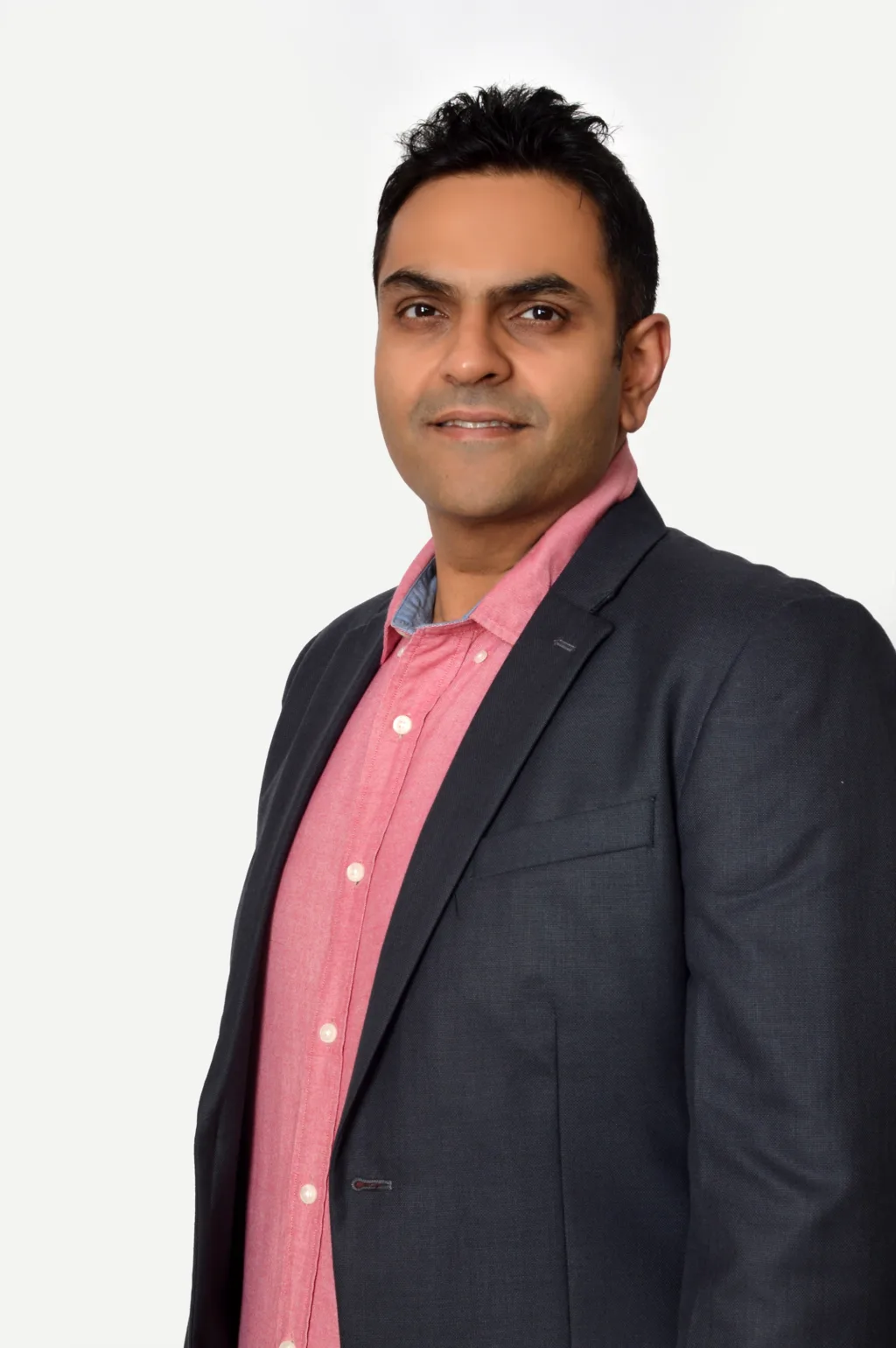Revolutionizing Healthcare: Dr. Akshay Batra’s Insights on AI Integration in Homeopathy


In the ever-evolving landscape of healthcare, the amalgamation of unique healing methods with cutting-edge technology has paved the way for groundbreaking advancements. One such visionary at the forefront of this revolution is Dr. Akshay Batra, Vice-Chairman and Managing Director of Dr. Batra’s Healthcare, and notably, the First Indian President of the Trichological Society of London (UK). With a steadfast commitment to patient well-being and a deep-rooted passion for holistic healing, Dr. Batra has embarked on a journey that explores the synergies between Artificial Intelligence (AI) and homeopathy led healthcare.

In this exclusive interview, we have the privilege of delving into Dr. Akshay Batra’s extensive knowledge and experience in the healthcare sector. Our focus: “the integration of AI into the realm of homeopathy, a field renowned for its natural approach to healing”. As we navigate this fascinating intersection of unique healing wisdom and modern innovation, Dr. Akshay shares his profound insights into the advantages, challenges, and future potential of AI in homeopathic healthcare. His perspectives promise to shed light on how AI is transforming the practice of homeopathy, ultimately enhancing personalized patient care and ushering in a new era of wellness.
- How is AI being integrated into healthcare treatments, specifically in the field of homeopathy?
There are numerous applications and processes in the health care sector where AI has proven quite effective globally. While AI was not widely employed in healthcare until recently, particularly in the field of homoeopathy. AI is now used for data mining, designing health treatment programs, and predicting the early detection of various disorders.
Drones and robotics have the potential to completely transform healthcare by increasing the speed and efficiency of medical services. This World Economic Forum, which uses drones to deliver vaccines and medications to remote areas of India, addresses crucial limitations in healthcare delivery systems. Robots can be utilized to deliver remote healthcare services such as virtual consultations with doctors or remote monitoring of patients’ vital signs.
Robotics, nanotechnology, biotechnology (in precision and tailored medicines and treatments), AI/ML (in image identification and diagnosis), augmented reality (in improved visualization and training), telemedicine, and wearables are all being used in homeopathy as well. This will give rise to a new significant themes in homeopathy that will define Indian healthcare in 2047.
- What are the key advantages of utilizing AI in homeopathic healthcare practices?
Technology progresses in response to scientific demand for the benefit of the end user. Homoeopathic technology adoption takes several forms.
Integrating AI into homoeopathic healthcare practices can provide various possible benefits.
- AI can analyse massive volumes of specific patient information, such as medical records, symptoms, and treatment outcomes.
- AI can help homoeopathic doctors create personalized remedies depending on the traits, symptoms, and medical history of every individual.
- AI-powered systems can automate administrative activities such as appointment scheduling and patient record-keeping, allowing practitioners to focus on patient care rather than paperwork.
- AI can help improve literature searches and analysis, allowing practitioners to stay up-to-date on the newest research findings and evidence-based practices in homoeopathy.
- Can you provide examples of how AI has improved patient outcomes in homeopathy?
AI analyses a patient’s medical history, lifestyle, and genetic information to offer the best homoeopathic cure.
Example
- Data mining is an essential use of AI in the field of homoeopathy. It is a computational technique that involves approaches from artificial intelligence, machine learning, statistics, and database systems to uncover patterns in large data sets.
- In order to identify the best homoeopathic therapy, Artificial Intelligence (AI) algorithms have been built to analyze data pertaining to individuals, such as symptoms, past medical history, and environmental factors. It also speeds up evaluation while decreasing the probability of a patient’s error, ensuring that patients receive the most suitable remedy for their particular requirements. Furthermore, AI can assist in identifying previously unknown correlations between various symptoms and illnesses, perhaps leading to new insights and treatment possibilities in the field of homoeopathy.
- What role does AI play in assisting homeopathic practitioners with accurate diagnoses and treatment recommendations?
The role of AI play in assisting homeopathic practitioners with accurate diagnosis and treatment recommendations.
- Based on the symptoms of a person and their health records, artificial intelligence (AI) algorithms aid homeopathic doctors in generating an inventory of plausible diagnoses.
- AI assist with the development of personalized regimens for treatment that take into account a patient’s unique characteristics, symptoms, and reactions to past therapies.
- Using patient information and past trends, artificial intelligence (AI) algorithms might anticipate feasible medical results.
- AI-powered decision-support technologies might offer guidance and therapeutic possibilities to homoeopathic clinicians based on a combination of patient data and recognized homoeopathic principles.
- Are there any challenges or ethical considerations associated with the use of AI in homeopathy, and how are they addressed?
The challenges that the healthcare system still faces are:
- Data security– The most difficult challenge is data security. So there is hacking and data misuse for commercial purposes.
- Lack of skill– Healthcare professionals frequently lack the ability to operate with technology. Senior physicians are hesitant about moving from pen to keyboard. Doctors and healthcare staff are being trained to overcome their lack of ability.
- Data management: Inaccurate data and data mining
- Lack of standardization– Many healthcare providers and systems still employ customized electronic health record (EHR) systems, which are extremely difficult to convert and distribute. The healthcare sector should transition to ICD-11 as soon as possible.
- Lack of infrastructure: Breakdowns in connections are frequently an issue in a nation like India, where blackouts of electricity remain regular
To address these challenges and ethical considerations:
- AI algorithms and decision-making processes should be transparent and explainable to patients as well as doctors, allowing them to comprehend how decisions are generated.
- Patients must be given reliable and impartial data on the scientific foundations of homoeopathic therapy so that they may make informed choices.
- Artificial intelligence (AI) systems utilized in healthcare, particularly homoeopathy, should be subjected to thorough clinical testing to assure their accuracy, safety, and efficacy.
- How does the combination of AI and homeopathy contribute to personalized patient care?
At Dr. Batra’s® we recently introduced AI Skin Pro which is the world’s 5th generation, artificial intelligence based machine imported from South Korea for the first time in India.
This AI machine contains four non-harmful, safe lasers that will catch the problem beneath the skin. When an issue beneath the skin that cannot be seen with the human eye is about to arise, AI can identify it considerably earlier than a problem that can be seen with the naked eye. AI points out the areas of the face and marks out where the problem is concentrated.
Artificial intelligence-powered gadgets might constantly monitor a patient’s health signs and symptoms, delivering real-time input to both the patient and their homoeopathic practitioner.
The combination of AI and homeopathy proven to be a strong instrument in the pursuit of better health and well-being.
- What are your predictions for the future of AI in healthcare treatments, particularly in the context of homeopathy?
This cutting-edge technology is changing the way homoeopathic doctors estimate treatment results, improving prediction accuracy, and offering individuals personalized treatment regimens.
Homoeopathic case taking necessitates a significant amount of data as there are various permutations and combinations of homeopathy which can be reduced by utilizing AI. This will provide the homeopath with additional time to work with patients. A lot of time is spent in clinical practice answering routine patient queries that AI may respond to.
In 1982, Dr. Batra’s® set up the world’s first fully computerized homeopathy clinic. Till today all over 200 clinics in 5 countries are 24×7 live networked. Dr. Batra’s® has been the pioneers brings for the first time in India the World’s first AI-powered device, AI Skin Pro for diagnosis in the treatment of skin diseases. Imported from South Korea, the machine is the world’s 5th generation AI-powered skin analyzer.
Dr. Batra’s® integrated the benefits of homoeopathy with best-in-class AI technology. With the help of AI treatments can be more effective and faster solutions can be achieved in the coming future.
Through machine learning at Dr Batra’s® we can use the benefit of the past 15 lac patients that we have treated to benefit future patients who present with similar problems.





